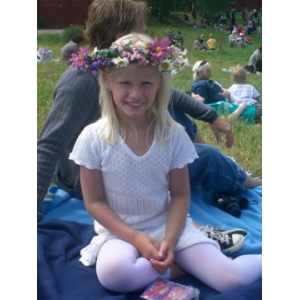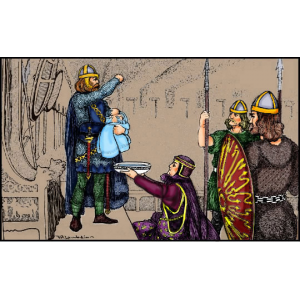 In the early 1970s, groups of people in Iceland, the United States, and Britain simultaneously formed new religious associations devoted to reviving the ancient religious beliefs and practices of pre-Christian Northern Europe, particularly those of pre-Christian Iceland and Scandinavia but also the related traditions of the Germanic Peoples of continental Europe and the Anglo-Saxons of England. In this chapter, the word Nordic will be employed to denote peoples and cultures of Northern Europe. Norse will designate the culture and religion of pre-Christian Iceland and Scandinavia in a general way, with Old Norse or Old Icelandic referring with greater specificity to the language and literature of those past times.
In the early 1970s, groups of people in Iceland, the United States, and Britain simultaneously formed new religious associations devoted to reviving the ancient religious beliefs and practices of pre-Christian Northern Europe, particularly those of pre-Christian Iceland and Scandinavia but also the related traditions of the Germanic Peoples of continental Europe and the Anglo-Saxons of England. In this chapter, the word Nordic will be employed to denote peoples and cultures of Northern Europe. Norse will designate the culture and religion of pre-Christian Iceland and Scandinavia in a general way, with Old Norse or Old Icelandic referring with greater specificity to the language and literature of those past times.
The Icelandic, American, and British Nordic religion revival associations of the early 1970s were not in contact with each other nor even aware of each other’s existence. Each had separately arrived at the same inspiration—that the Pagan religious traditions of the Nordic past should be revived for the benefit of modern people.
In Iceland, the poet and farmer Sveinbjorn Beinteinsson and a group of friends, many of them also poets and devotees of early Icelandic literature, formed the association known as Asatruarfelagid, “the fellowship of those who trust in the ancient gods,” often abbreviated as Asatru (Strmiska 2000). In the United States, Stephen McNallen and Robert Stine formed the Viking Brotherhood, which was soon renamed the Asatru Folk Alliance. In Britain, John Yeowell and associates formed the Committee for the Restoration of the Odinic Rite (Kaplan 1997). These Nordic Pagan revival organizations of the 1970s have since branched and split as larger numbers of people have become involved and introduced new ideas and sometimes divergent directions, while remaining united in their devotion to the religious and cultural traditions preserved in the ancient literature of Iceland and other Nordic nations.
Most modern Nordic Pagans speak of their religion as Asatru (believing in or trusting in the ancient gods) and of themselves as Asatruar (Asatru believers); alternately, they refer to themselves as Heathens (the ancient Germanic term for non-Christians) and their religion as Heathenry. The terms Nordic Paganism, Asatru, and Heathenry will be used interchangeably in this discussion. Nordic Pagan revival associations have also sprung up in many other lands, including Germany, Belgium, Denmark, Sweden, Norway, Canada, and Australia. This chapter will provide a brief account of the history and development of the Icelandic and American forms of Nordic Paganism and offer a sketch of Nordic Paganism at the start of the twenty-first century, based on interviews and field research in both nations.
Previous studies of Nordic Paganism in the United States have tended to emphasize (and perhaps to overemphasize) certain racist and Neo-Nazi elements within the Nordic Pagan Community (Kaplan 1997; Gardell 2003). The majority of modern Nordic Pagans are both enthusiastically devoted to Northern European cultural heritage and firmly opposed to Nazism and racism. The minority of Nordic Pagans with Neo-Nazi leanings are firmly denounced by most modern Nordic Pagans as members of fringe groups that they wish to have nothing to do with. The pride in ethnic heritage felt by Nordic Pagans should not be mislabeled as racism, nor should devotion to Nordic culture be flatly equated with Nazism.
Of the American Nordic Pagans interviewed for this article, one is a lesbian with an Asian lover, another participates in a Nordic Pagan association with an African American member, and yet another has adopted Korean children whom he encourages to investigate their Korean spiritual and cultural heritage and only to become Heathens if they feel a strong motivation to do so. These are hardly the profiles of would-be Nazi goose steppers.
Free eBooks (Can Be Downloaded):
Anonymous - Pagan Stones And GemsMourant Brock - Rome Pagan And Papal
Frater Fp - Sigils In Theory And Practice
Mindy Macleod - Bandrunir In Icelandic Sagas
Richard Roy - 13 Questions On Paganism And Wicca

